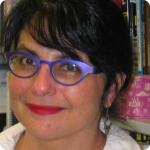Please note a change of time:
Keynote Speaker for the Undergraduate Research Symposium:
The Discussion will explore one of the means by which primarily young people in West Germany attempted to “revolutionize” everyday life and beyond, through new, explicitly political forms of cohabitation designated Wohngemeinschaften (WGs). WGs served as critical hubs of more conventional popular politics of the era, but also housed intense experiments in remaking the self and relations with others, transcending the nuclear family and the centrality of the couples relationship, and working through ideas and convictions across populations often conceived as incompatible. Part of broader efforts to remake German society from the bottom up, these experiments mark one site of successful youth efforts to transform the world around them.
About the Speaker:
Belinda Davis is a professor of history at Rutgers University and director of the Rutgers Center for European Studies. She is author or co-editor of five books, including the coedited Social Movements After ’68: Selves and Solidarities in West Germany and Beyond (2022); The Internal Life of Politics: Extraparliamentary Opposition in West Germany, 1962-1983 (forthcoming with Cambridge). She is currently completing work on Voices of the Organized Poor: Learning from the Poor People’s Economic Human Rights Campaign’s Everyday Struggles for Survival and Alternative Futures; and working on an environmental history of modern Europe for Cambridge University Press. She is a member of the Rutgers team participating in the Jean Monnet-funded ValEUs grant, of which the University of Pittsburgh is also a consortium member.

